We’ve all been there: you open your pantry, grab your protein powder for a post-workout shake, and notice the expiration date passed a month ago.
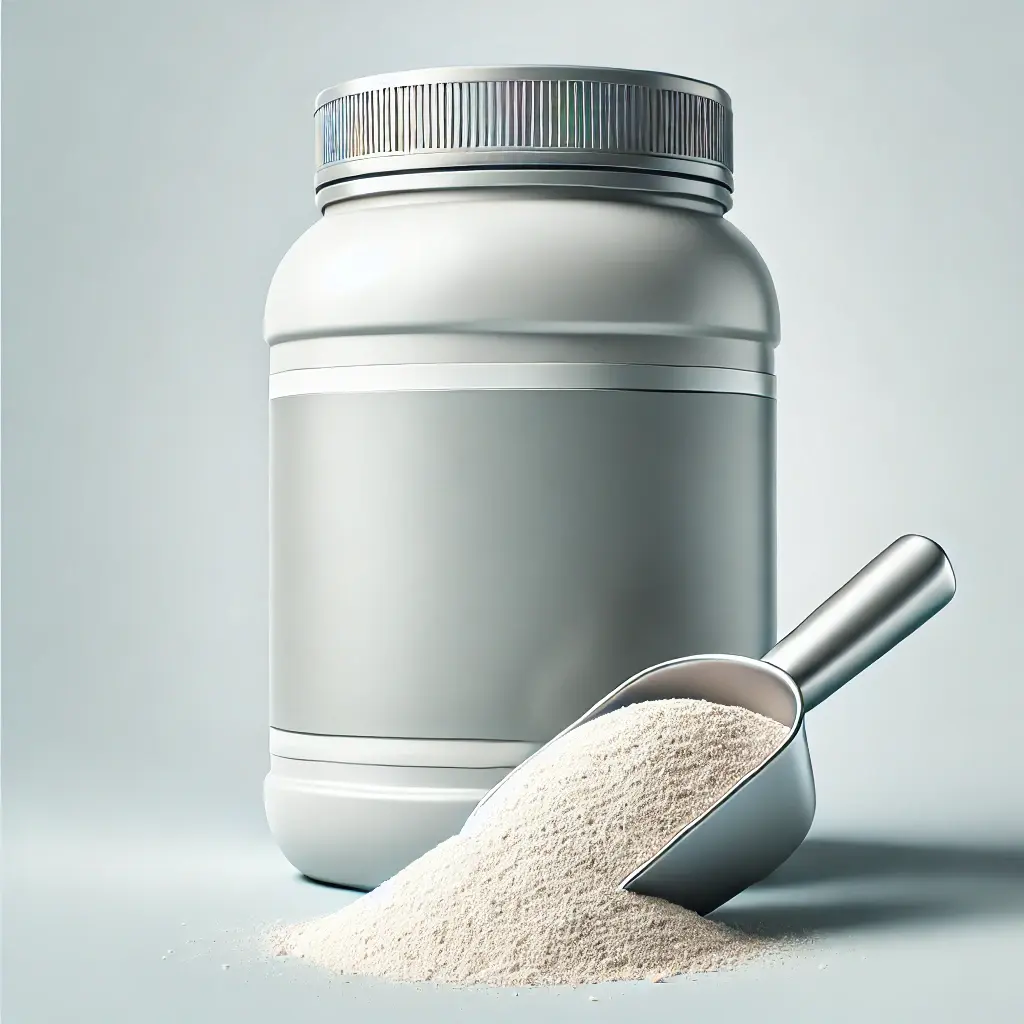
Now you’re asking yourself, “Is it safe to take expired protein powder?” This is a common dilemma for fitness enthusiasts, especially when a half-full tub of protein powder is staring back at you. Before you scoop, let’s explore whether it’s okay to use expired protein powder, how it affects its quality, and the potential risks involved.
Understanding Expiration Dates on Protein Powder
First off, it’s essential to clarify what expiration dates really mean. The date printed on your protein powder container isn’t necessarily a hard deadline. Instead, it’s typically a “best by” date, which indicates the period during which the manufacturer guarantees the product will be at its highest quality.
After this date, the protein powder may start to lose its flavor, texture, and nutritional value. However, it doesn’t necessarily mean it’s harmful to consume. But there are a few factors to consider before you decide to use expired protein powder.
Does Expired Protein Powder Lose Nutritional Value?
The main concern with expired protein powder is whether it still provides the nutritional benefits you expect. Protein is a macronutrient that, when stored properly, remains relatively stable over time.
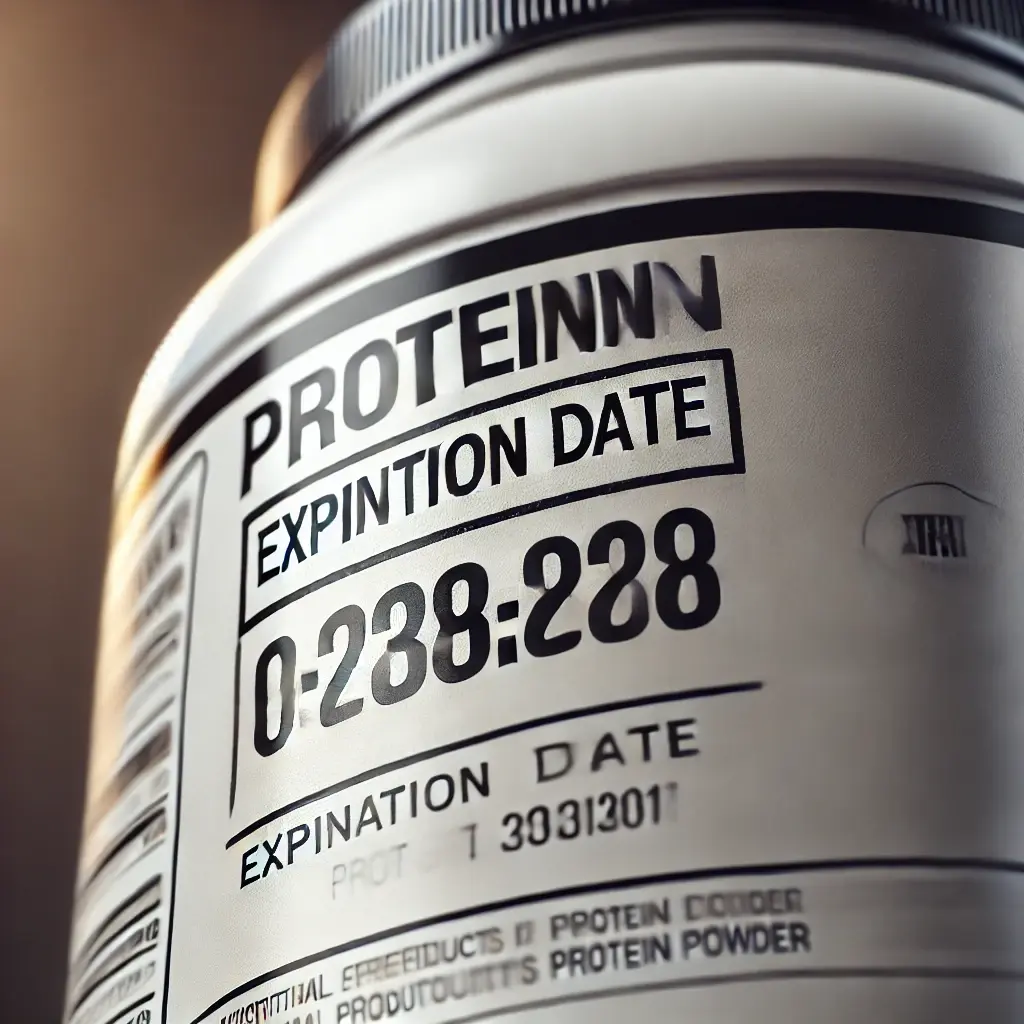
However, once the “best by” date passes, the powder may begin to degrade in terms of:
- Protein content: The protein itself doesn’t break down easily, but the powder may lose some of its effectiveness, meaning you might not be getting the full amount of protein per serving that’s listed on the label.
- Amino acids: Over time, amino acids, which are the building blocks of protein, may start to break down, making the powder less effective in muscle repair and recovery.
- Vitamins and minerals: Some protein powders are fortified with additional vitamins and minerals. These nutrients may degrade more quickly after the expiration date, reducing the overall nutritional value.
While expired protein powder might not harm you in the short term, it might not be delivering the same punch as it did when it was fresh.
Can Expired Protein Powder Make You Sick?
Now for the big question: Can consuming expired protein powder make you sick?
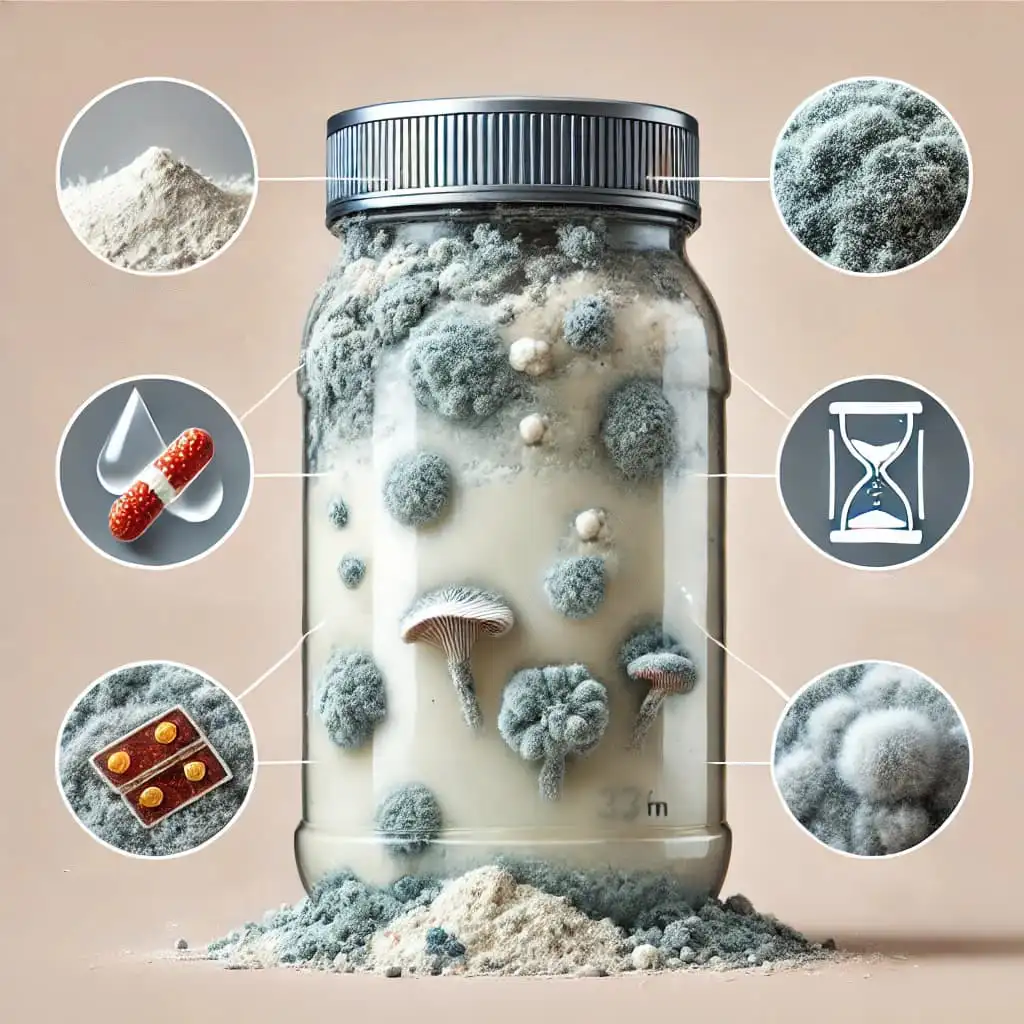
The answer depends on a few key factors.
- Storage conditions: How you’ve stored your protein powder plays a huge role in its safety. If it’s been kept in a cool, dry place, away from moisture and heat, the chances of it going bad are lower. On the other hand, if the powder has been exposed to moisture, it could develop mold or bacteria, which can indeed make you ill.
- Smell and taste: Always trust your senses. If the powder smells off or has a strange taste, it’s better to discard it. Protein powder, especially varieties with added flavors like vanilla or chocolate, can develop a sour or bitter taste as it ages, which is a sign that it’s past its prime.
- Appearance: If the powder is clumping, has discolored spots, or you see visible signs of mold, don’t use it. These are signs that moisture has gotten into the powder, which can lead to bacterial growth.
While most expired protein powders are unlikely to cause serious harm, consuming powder that’s been poorly stored or shows signs of spoilage can lead to stomach upset or foodborne illness.
How to Properly Store Protein Powder
Proper storage is crucial if you want your protein powder to last as long as possible.
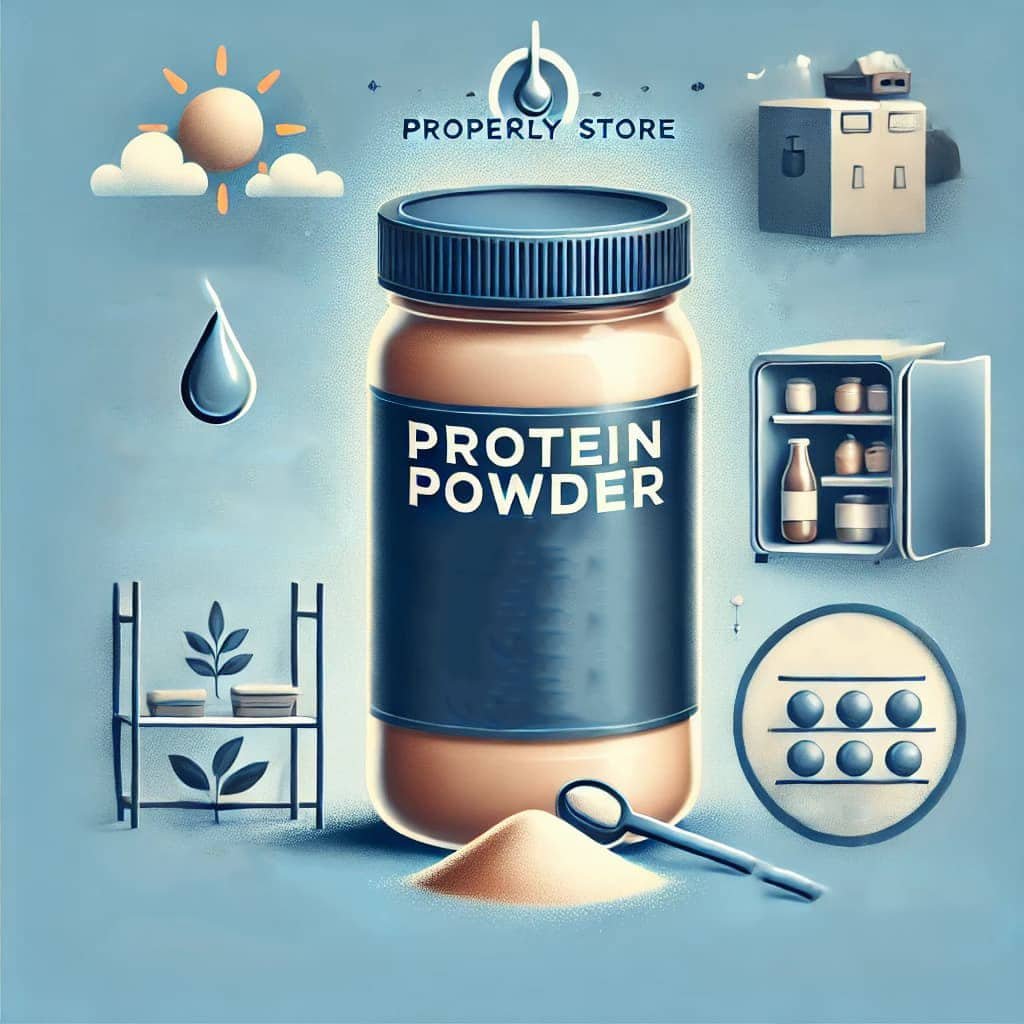
The environment where the powder is stored can significantly impact its shelf life.
Here are a few tips to keep your protein powder fresh:
- Keep it dry: Moisture is the enemy of protein powder. Always store the container in a cool, dry place, away from humid areas like the bathroom or kitchen.
- Seal tightly: Make sure the container is sealed tightly after each use. This prevents air and moisture from getting in, which can lead to clumping and spoilage.
- Avoid heat: Heat can speed up the degradation of the protein and other nutrients. Store your protein powder away from direct sunlight or heat sources.
How Long Does Protein Powder Last After Expiration?
The shelf life of protein powder varies depending on the type and the brand. Most protein powders, if stored correctly, can last anywhere from 6 to 18 months past their expiration date without significant quality loss.
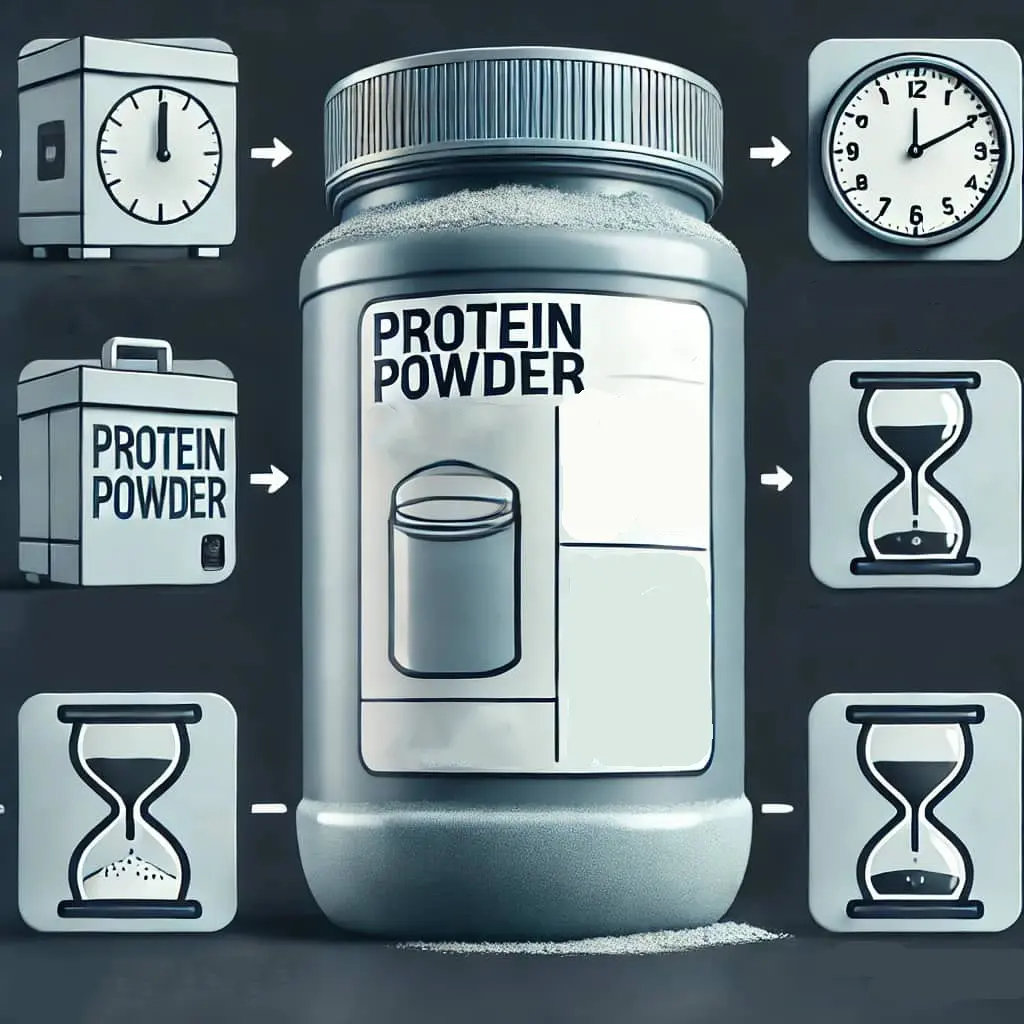
However, this doesn’t mean you should automatically use it without checking the signs of spoilage mentioned earlier.
Types of Protein Powder and Expiration
Not all protein powders age the same way. Different ingredients and formulations can affect how long a protein powder remains usable after its expiration date. Here’s a quick comparison of how long different types of protein powders tend to last:
| Type of Protein Powder | Shelf Life After Expiration (approx.) | Factors That Influence Degradation |
|---|---|---|
| Whey Protein | 6-9 months | Moisture, exposure to heat |
| Casein Protein | 9-12 months | Clumping, storage conditions |
| Plant-Based Protein | 6-12 months | Natural ingredients degrading faster |
| Egg White Protein | 12 months | Sensitivity to moisture |
| Collagen Protein | 12-18 months | Less prone to degradation |
Should You Take Expired Protein Powder?
In many cases, using protein powder a few months past the expiration date might be fine, especially if it has been stored properly.
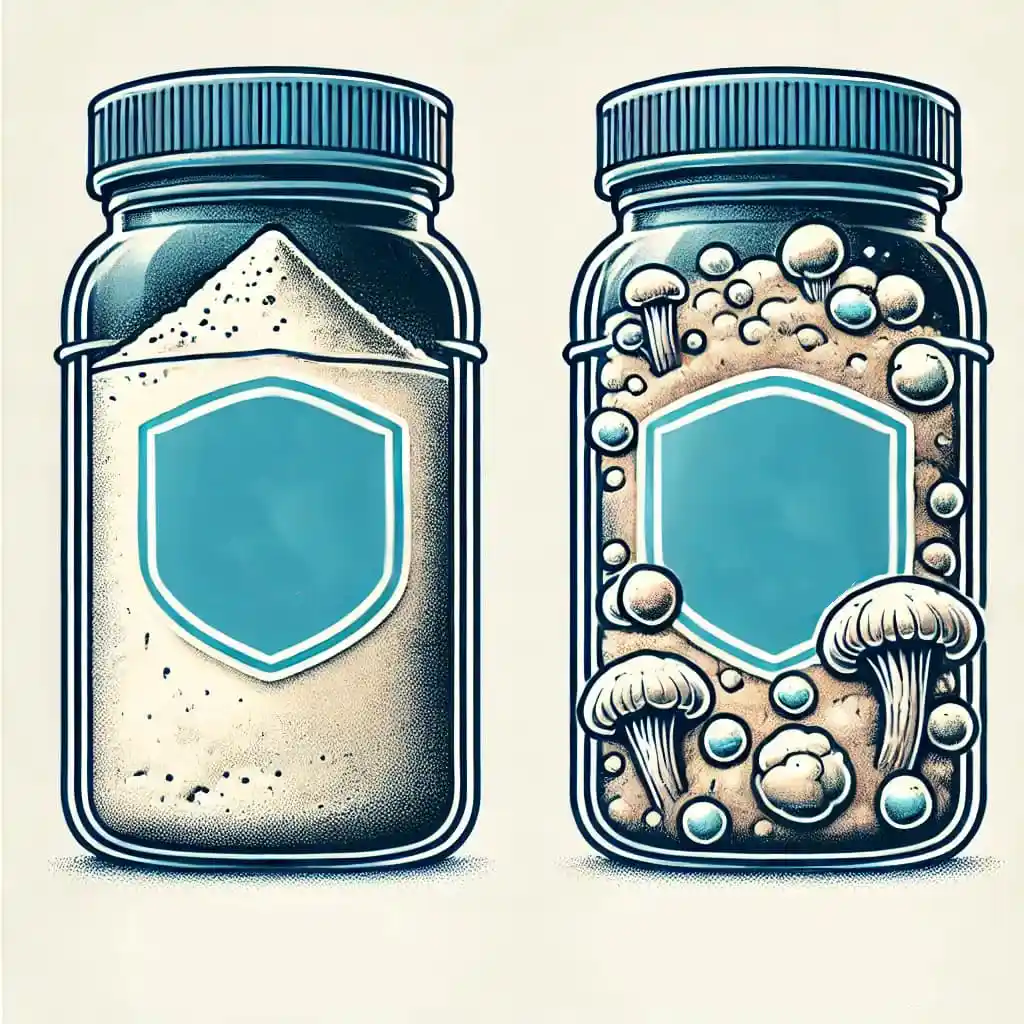
However, it’s important to check for signs of spoilage like smell, taste, texture, and appearance before consuming it.
- Safe to use: If the powder still smells and tastes normal, has been stored correctly, and shows no signs of moisture or spoilage, it’s likely safe to use.
- Not safe to use: If the powder smells sour, has clumps, or tastes off, it’s best to toss it. Additionally, if you notice any mold or unusual discoloration, do not use it.
Tips to Extend the Life of Your Protein Powder
To avoid the dilemma of whether to use expired protein powder in the future, here are a few tips to extend the shelf life of your product:
- Buy smaller containers: Instead of purchasing a large tub of protein powder, consider buying smaller amounts that you can use within a few months.
- Use a desiccant pack: Some protein powders come with a desiccant pack to absorb moisture. If yours doesn’t, you can buy one and place it inside the container to keep it dry.
- Refrigerate in hot climates: If you live in a hot or humid environment, storing protein powder in the refrigerator can help prolong its freshness.
Conclusion: Should You Use Expired Protein Powder?
In conclusion, expired protein powder is generally safe to use if it has been stored in a dry, cool place and shows no signs of spoilage. However, its nutritional value may degrade over time, and the flavor or texture could change. Always check for clumping, discoloration, or unpleasant smells before using it.
If you’re in doubt, it’s better to err on the side of caution and discard the powder, especially if it’s been expired for a long period.
Related Posts:
- What is the Paleo Diet
- Why the DASH Diet is Ranked
- The Essential Keto Cookbook – An Informative Introduction
- The Ultimate Guide to Low Carb Indian Foods for Weight Loss and Health
- Dairy-Free Diet
- Diet That Precludes Grains And Dairy Crossword Clue
FAQs
Is it harmful to use expired protein powder?
While it’s not likely to be harmful if stored properly, expired protein powder may lose some of its nutritional value and effectiveness. Always check for signs of spoilage.
How can you tell if protein powder has gone bad?
Signs that protein powder has gone bad include a sour or bitter taste, clumping, an off smell, and visible signs of mold.
How long is protein powder good for after the expiration date?
Most protein powders are safe to use for 6-18 months past the expiration date if stored correctly and show no signs of spoilage.
Does expired protein powder lose its protein content?
Over time, the protein content may degrade slightly, but it’s more likely that added ingredients like vitamins or amino acids lose their potency.
Can I freeze protein powder to extend its shelf life?
Freezing protein powder isn’t necessary, but storing it in a cool, dry place is the best way to maintain freshness. In extremely hot climates, refrigerating it can help.